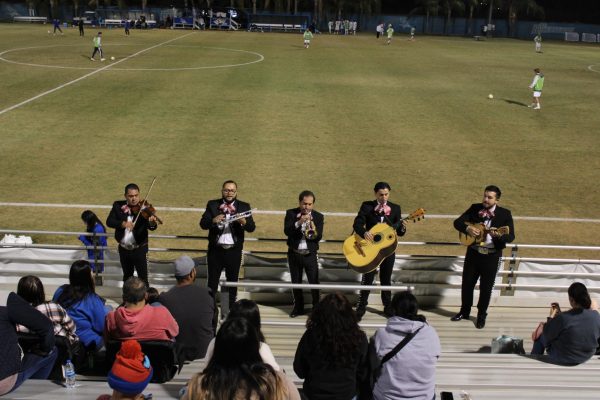University acts to close dorm budget gap
West facing corner of Juniper Hall located at the Student Housing East complex, Thursday, Nov. 14 2019. Photo by Tony Hernandez.
November 20, 2019
Since Student Housing East opened at CSU Bakersfield in January of 2015, the residence hall has been operating at a deficit due to a lack of occupancy, operating costs, and mortgage payments. The administration has responded with more marketing, shutting down Student Housing West, and creating a requirement for some freshmen to live in the residence hall.
According to data provided by the university , from January of 2015 to June 2019, the cost of operating Student Housing East totaled $11.549 million. Mortgage payments have totaled $8.391 million. Revenue from occupancy, conference hall usage, space rental, and guest housing has totaled $16.816 million. Guest housing includes students’ family members, faculty, and non-resident students who often rent rooms at the dorms for short periods of time. This leaves a deficit of $3.124 million dollars. The deficit has been covered by the residence hall surplus fund so far according to Jennifer Self, director of public affairs and communications.
“As you can see, we run at a deficit. The mortgage payments and operating cost exceed the revenue,” Self said. “We need to fill the dorms.”
In an effort to fill Student Housing East and cut operating costs, spring 2019 was the last semester to house students in the older Student Housing West residence halls.
“They are older and it would have cost a ton of money to upgrade them to a standard with codes more stringent now than they used to be and the maintenance is exorbitant,” Self said.
At the end of the 2018-2019 year, CSUB announced a price reduction in student housing cost. The reduction meant that housing prices would go down $23 on a single, $569 on a double, and $372 on a triple room per semester. At the same time, the student meal plan was raised $109 per semester. This decision was based on a market analysis prepared by the CSUB director of financial aid that examines the local market for apartment rentals.
“I think the dorms are a good price for the two or three person rooms, they are a little too expensive for the single apartments, especially for a tiny room,” said Matthew Diaz, a freshman from San Fernando.
Diaz’s financial aid covers part of his housing. His parents cover the rest so he can focus on school instead of getting a job.

Source: Information taken from individual university websites.
“The meal plan is the problem. We don’t need $2000 a semester for dining,” Diaz said. Diaz plans to stay in the dorms for his sophomore year, citing the price and convenience of living on campus.
Student Housing East has had issues with filling to capacity since it opened. Last year, Self reported that the residence hall was at 62% capacity. Currently there are 500 beds with 415 being occupied by students putting the capacity at 83%.
The new First-Year Residency Requirement going into effect at the beginning of fall 2020 will have an impact on the resident halls, as the program will require all first-year students that live outside a 30-mile radius from CSUB to live in the dorms. The freshman class that began in the fall of 2019 was comprised of 1,568 new students, 340 of which came from outside of Kern County.
“There is a big, long list of exceptions to the rule,” CSUB president Lynnette Zelezny explained earlier this year in an exclusive podcast interview with The Runner. Zelezny expects this program to add “a few hundred students ” to the residence halls next fall.
“I think it is pretty affordable when compared to UC housing and other CSU housing,” said Darien Ware, a sophomore computer science major. Ware does not plan to stay in the resident hall next year, wanting his own kitchen and ability to prepare his own meals. After financial aid, Ware pays around $1,000 per semester out of pocket to cover his housing costs.
“I would never use all my meal plan if I didn’t buy food for my girlfriend,” Ware said.








